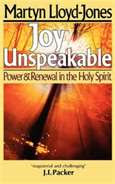1 Corinthians 13
Chapter 13
In order to properly enter
this chapter, we must keep in mind, the last verse of chapter twelve: “Earnestly desire the best gifts. And yet I
show you a more excellent way.” After giving this treatise on love, which
we are about to study, Paul begins chapter 14 by stating, “Pursue love, and desire spiritual gifts (again the word gifts is not in the original Greek),
and we must also take this command into account. It is part of the context of
Paul’s entire discourse on spiritual gifts and love, and none of it stands by
itself.
The gifts of the Spirit are
all desirable and none of them are to be despised. Paul certainly does not
disdain them, in fact, the verb desire is
imperative, both in chapter 12 and 14. Paul commands the Christian to desire
the gifts and gives them their place in the sacred Scriptures. He is quite
clear as to what our conclusion should be. It is to pursue love, while you
desire spiritual gifts. Adam Clarke comments: “There is nothing good, nothing profitable to salvation, unless it be
done in the power of God communicated by Christ Jesus, and in that holiness of
heart which is produced by his Spirit.”
The gifts are desirable and, as
Matthew Henry adds, God gave them generously: “Concerning all these observe: The plenteous variety of these gifts and
offices. What a multitude are they! A
good God was free in his communications to the primitive church; he was no
niggard (not stingy) of his benefits
and favors. No, he provided richly for them. They had no want, but a store –
all that was necessary, and even more; what was convenient for them too.”
Thursday, March 26, 2020 | 0 Comments
1 Corinthians 12
Chapter 12
Basic truth involved with spiritual gifts
1. Now concerning spiritual gifts, brethren, I do not
want you to be ignorant:
2. You know that you were Gentiles, carried away to
these dumb idols, however you were led.
3. Therefore I make known to you that no one speaking
by the Spirit of God calls Jesus accursed, and no one can say that Jesus is
Lord except by the Holy Spirit.
4. There are diversities of gifts, but the same
Spirit.
5. There are differences of ministries, but the same
Lord.
6. And there are diversities of activities, but it is
the same God who works all in all.
7. But the manifestation of the Spirit is given to each
one for the profit of all.
In
verse 1, the word gifts is not in the
original Greek, but simply spirituals. It
is helpful in understanding our subject, to think about some synonyms for
this word. I copy these from the Strong's Greek Dictionary: non-carnal, supernatural, regenerate. Our subject is not about
anything human, it is supernatural, belonging to the regenerate or spiritual
new nature. In verse 4, we do have the word gifts
in the Greek, so it is proper to think and speak of these as gifts. They
are not part of our physical make-up, which we have obtained by birth. Oswald
Chambers comments in My Utmost for His
Highest that spiritual gifts are not the accident of genes, derived from
our parents. In other words, they are not natural talents or abilities. They
are given directly by God to the regenerate person.
Paul
leads us into the study of spiritual gifts by emphasizing a basic truth in
verse 3. As early as in Genesis 4:26, we have people calling on the name of the
Lord: “Then men began to call on the
name of the Lord” and in 12:8, Abram specifically, “built an altar to the Lord and called on the name of the Lord.” This
is very significant, now that we begin to study Paul’s teaching, to know that no
one can say that Jesus is Lord except by the Holy Spirit. Natural man
cannot honestly say it, because of his fallen nature. A true declaration of the
lordship of Christ is the work of the Holy Spirit in a human being.
Sunday, March 15, 2020 | 0 Comments
Special Introduction (1 Co. 12-14)
A special introduction to 1 Corinthians, chapters
12-14
(From this point on I will be using the New
King James Version)
Chapter 12:1 & 2
1. Now concerning spiritual gifts, brethren, I do not want you to be ignorant:
1. Now concerning spiritual gifts, brethren, I do not want you to be ignorant:
2. You know that you were Gentiles, carried away to
these dumb idols, however you were led.
Just as he
began chapter 10, Paul shows again that he is an enemy of ignorance among
Christians. He states in 10:1, “I would
not, brethren, have you ignorant…” (ASV)
concerning Old Testament accounts, and he uses the exact same Greek word here
in 12:1, “I do not want you to be ignorant,” and in his second letter
to the Corinthians: “We would not have
you ignorant, brethren…” (2
Co.1:8) of the personal troubles that Paul’s team experienced. He affirms the
same to the Thessalonians: “We would not
have you ignorant, brethren…” (1
Th.4:13), concerning the Lord’s return for His church.
Sunday, March 08, 2020 | 0 Comments
Subscribe to:
Posts (Atom)






 Recommended Books
Recommended Books



